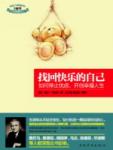Chapter 1 preface
We only have a few decades in this world, and we waste a lot of time thinking about little things that should have been forgotten or turned a blind eye.In fact, half of all the sad things in the world are caused by little things.Such as some small injuries, some small humiliation, and so on.Interestingly, people who are busy all day, such as doing research in libraries and laboratories, rarely suffer mental breakdowns because of worry, because they don't have time to think about these little things.
Worry is very harmful to people, but when it hurts people, it is not when people are doing something, but after people have done things.
The Indian dramatist Karidasha called the day when the sun rises—dawn comes—the life in life, declaring: "Yesterday is a dream, tomorrow is a phantom. Only today will make every yesterday a Dreams of happiness make every tomorrow a phantom of hope." At your worst moment, can you blurt out "No matter how bad tomorrow is, I'm past today"?The reason is simple, today is the most real post!
Beginning in 1931, I conducted an educational course in New York for business and professional men and women.Initially, I only held speaking classes.The purpose of such courses is to use practical experience to help adults express their opinions more clearly, effectively, and calmly in accordance with their own thoughts in business discussions and groups.So, I wrote a book called "The Art of Carnegie Eloquence and Interpersonal Relationships". This book is not written in a general way, but gradually evolved from the experience of these students.
However, several years of experience have taught me that worry is another common and significant problem.Most of my students are office workers, executives of all kinds, salesmen, engineers, accountants, and most of them have problems.There are women in the class too - working women and housewives who have their own issues too!Apparently I needed another book on how to overcome worry.
So I went to the public library on 50th Street and 42nd Street in New York. Unexpectedly, there were only 22 books with the title "Anxiety".I've read all 22 books on worry on the shelves of the New York Public Library.I also searched elsewhere for all the books I could find on worry, but I couldn't find a single one that would be suitable for the adult class, so I decided to write another one.
In order to write this book, I have read everything I can find on the meaning of the topic, including Dix newspaper mailbox answers, divorce court records, parent magazines, and various well-known works.At the same time, I also hired a trained person to research, explore.It took him a year and a half to read the materials I had missed in various libraries, to explore various special collections of psychology, to read various magazine articles, to explore countless biographies of great men, to find out how the great men of each era coping with life.
I also did something bigger than the interviews and the readings: I worked for 5 years in a lab that specialized in overcoming anxiety, the same lab that my adult training classes consisted of.As far as I know, this is the first and only laboratory in the world that studies worry.Our approach is to teach students a set of principles for overcoming anxiety, ask them to go back and apply them, and then return to the class to report the results. Many students report some methods that have worked well in the past.
Arguably, I've heard the most "overcoming worry" talks by anyone in the world.In addition to this, I have accumulated hundreds of ways to "overcome worry".It can be said that this book does not come from the tower of ivory, nor is it an academic research report on how to overcome anxiety, but a documentary summary of hundreds of adults overcoming anxiety.This is definitely a more practical book!
Harvard University professor Willem James once said: "If we compare with what we should achieve, we are only half awake, we only use a small part of the energy of our body and mind. We are within the limit , there is more energy, but we are used to not using it."
The sole purpose of this book is to help you discover, develop, and utilize those energies latent in your body and mind that you habitually do not use.Those are the untapped treasures you have conceived in your body and mind!
I believe this book will be of benefit to your life, and I wish you to overcome the trouble of bad emotions as soon as possible.

